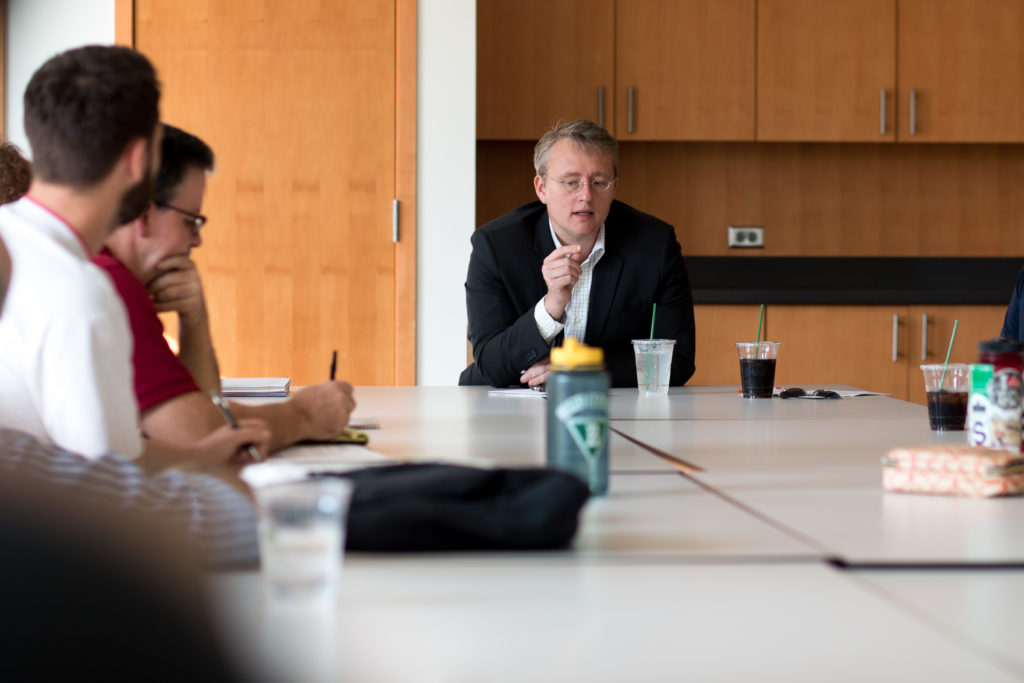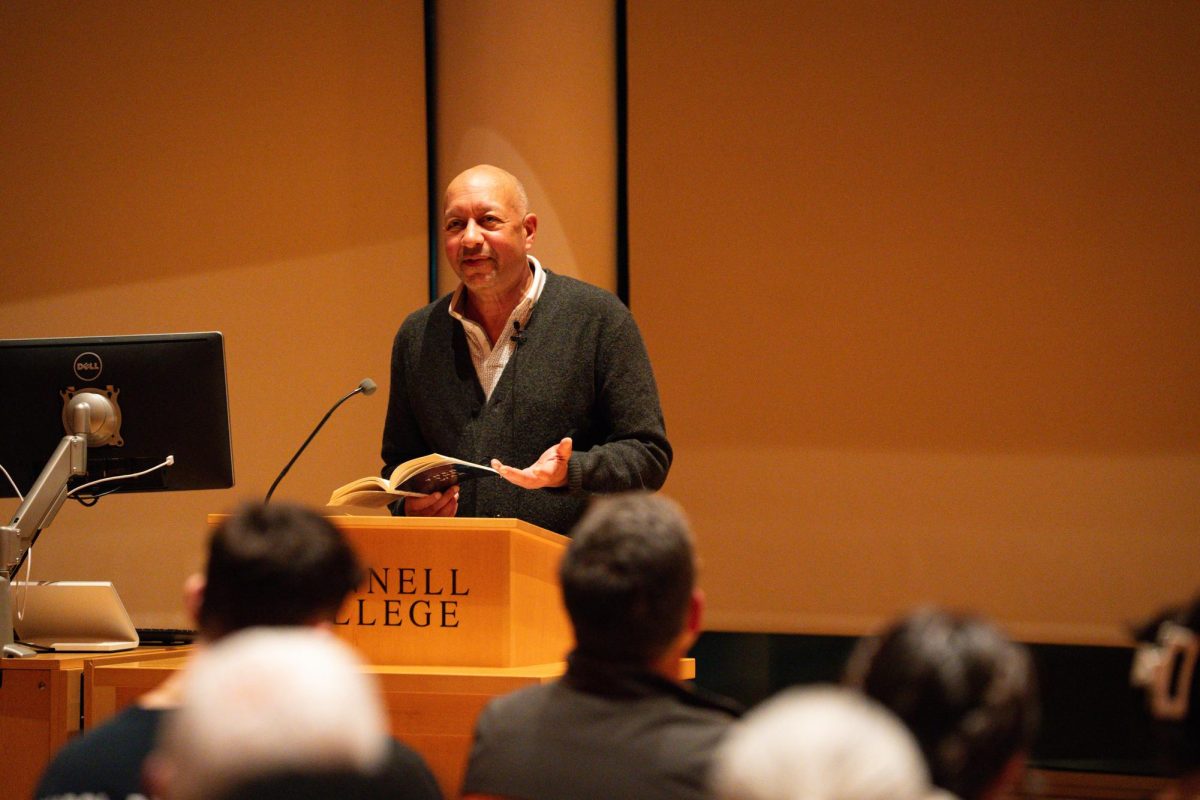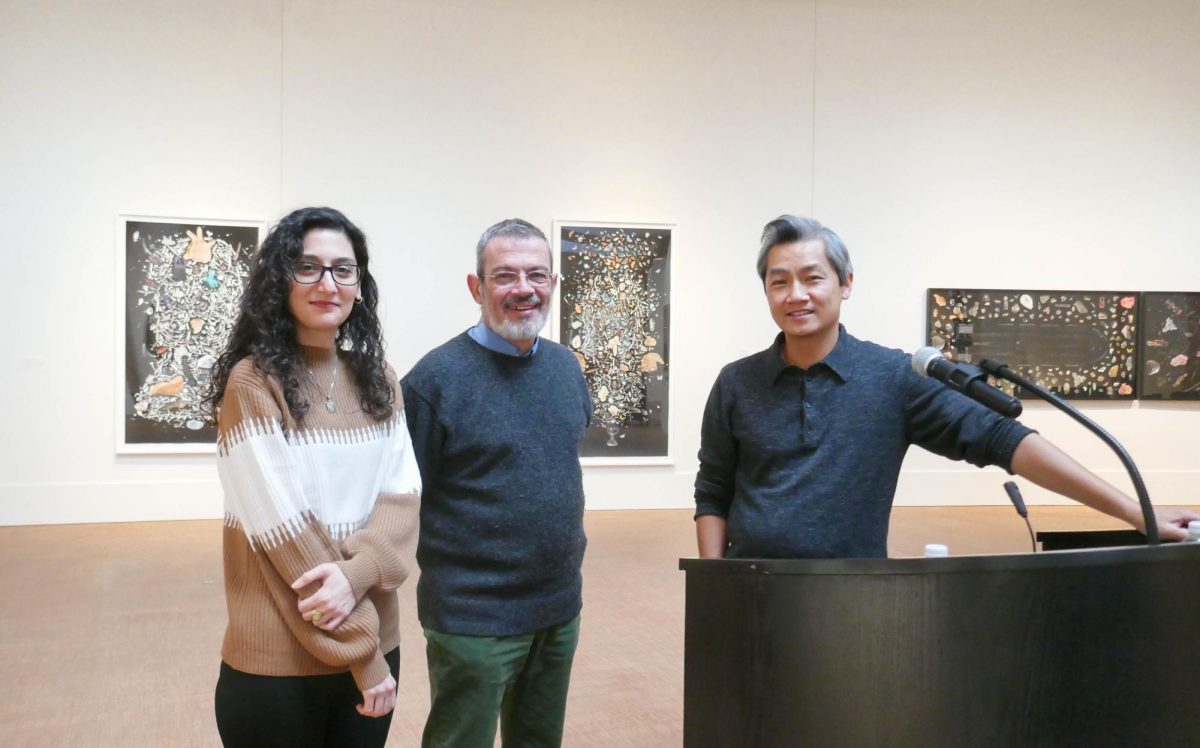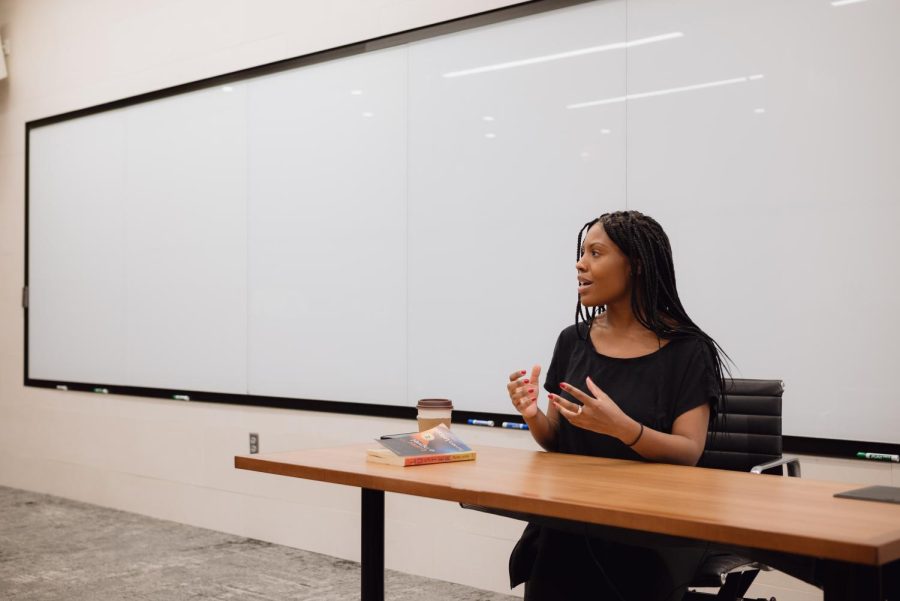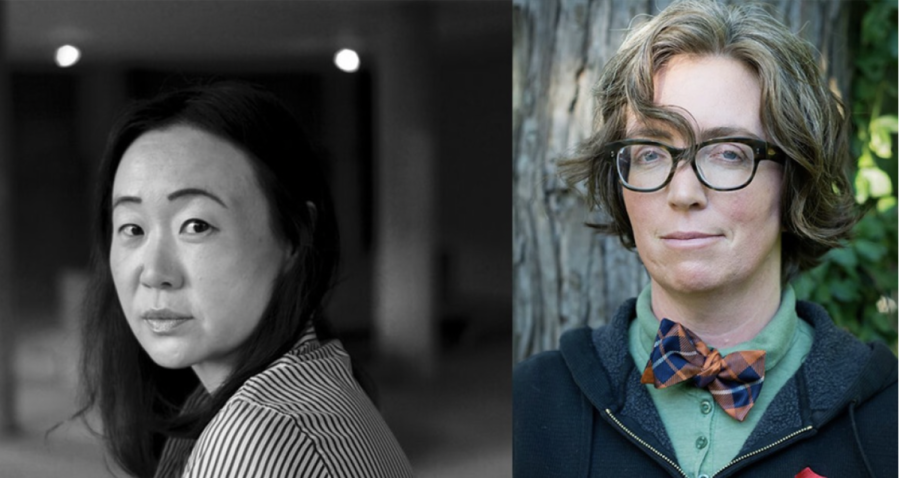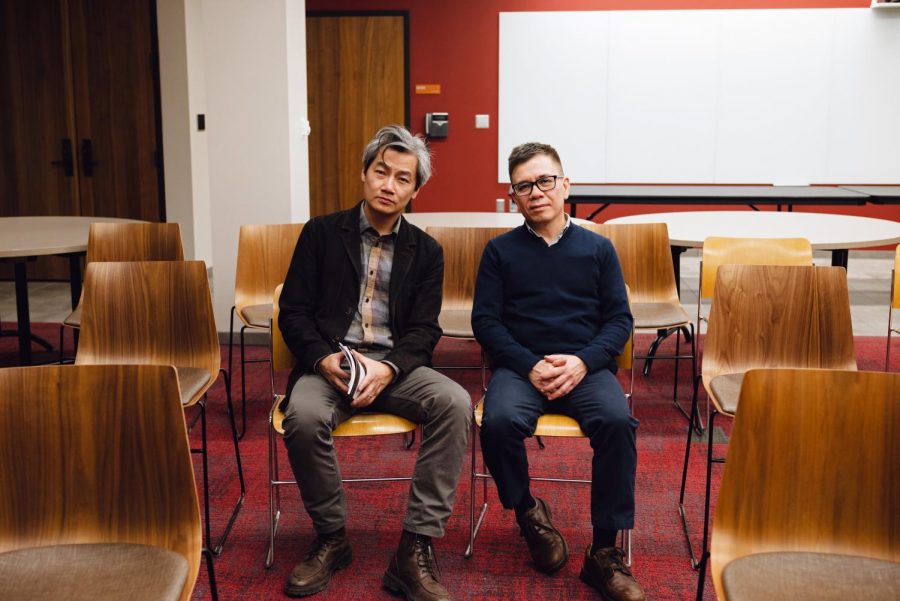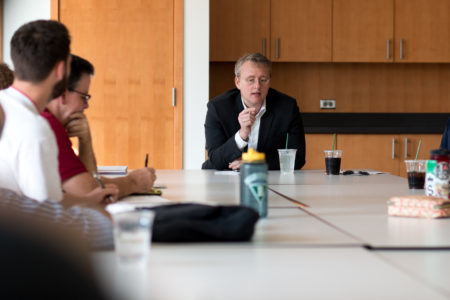
Photo by Helena Gruensteidl
Roy Scranton is the author of “Learning to Die in the Anthropocene: Reflections on the End of a Civilization” and the novel “War Porn.” His essays, journalism, short fiction, and reviews have appeared widely. The S&B’s Saiham Sharif ’20 sat down with him to discuss his writing process, hurricanes and climate change.
How would you describe your writing process?
Well, it depends on the project. The simplest way to describe the writing process is I gather the materials and sit down every morning and write. But really, it’s dependent on whether I’m working on a novel or a piece of journalism with a deadline or the scholarly monograph I’m working on right now or conceptual work like “Learning to Die in the Anthropocene.” But the broad outlines are pretty straightforward. I just pile a bunch of things together and work through it slowly day by day.
You mention these different genres. You’ve written poetry, journalism and fiction in the past. Do you find yourself attracted to any of these labels? How did you find your medium of expression?
Well, one has to, I suppose, negotiate with these labels and sort of the readerly expectations that come along with them. As you mentioned and as I mentioned, I write nonfiction and fiction. I have written poetry, though I don’t regularly anymore. The main thing I’m interested in is prose and I guess the reason that I favor working in prose, over say working with poetry … is that [prose] is the mode by which you can do certain kinds of non-fiction — journalism, essays and so on, for a broader audience. You can’t do that with poetry, but also, the main distinction for me between poetry and prose is one that Gertrude Stein makes: The unit of composition for poetry is the line and the unit of composition for prose is the paragraph. I think more in paragraphs than I do in lines, which is part of why I’m bad at Twitter. That’s the nut of it there.
You’ve written about hurricanes in Texas before. What are your thoughts on hurricane Harvey?
Hurricane Harvey was a terrible disaster and it’s going to be worse the next time. The thing with Harvey is that it flooded Houston, but they don’t have to address, or, deal with the problem of storm surge, as we’re seeing in Irma. A strong storm can knock things over and blow water over it. You know, that piece in The Times that was a short version of a more extended piece that got published in a finished art magazine. … It was trying to bring attention to some of the problems in Houston and places like Houston, where our cities and the people who live there and the government institutions aren’t ready for the disasters that are coming and are increasing. It was a warning, but at the same time, it was trying to think through the fact that we’re not prepared and it looks like we’re never going to be. This is something I address at length in “Learning to Die in the Anthropocene.” It’s not that people have their head in the sand. It’s more of a case that people are working in the institutions that exist, with the governmental bodies that exist within city councils, country organizations, state legislatures and federal government. There are competing interests and economic interests. There are competing plans. All of it works marvelously to create a logjam, where nothing happens, without some cataclysmic motivation. And that seems to be what we’re stuck with, you know. The kind of governmental institutions that have been built around a carbon fuel economy and they’re not going to be adequate in speech or scope to deal with the world we live in now — the world of Harvey, Irma, Katrina and Sandy.
We have these two competing paths of predicting climate change — the science fiction novel and non-fiction. Would you say one of them is more effective than the other?
“Effective at what?” is the question I want to ask. Science fiction is not just about imagining the future. What science fiction is mostly about is the present. It’s a fantasy place where we can work out the ethical dilemmas, the moral problems, the anxieties and the hopes that we live with today. We project them onto the future. And so, it’s very effective for that. … A lot of people see climate change as an economic opportunity, a political activity. Science fiction is effective in those ways. Non-fiction is effective in different ways. In “Learning How to Die in the Anthropocene,” the point isn’t to freak people out. The point, my hope, with that book is that people who are freaked are able to read it and come to a more judicious, less alarmed relationship with understanding climate change. … After a certain point, most people have their worldviews formed and they’re no longer amenable to information that goes against their world and they’re more often looking for information that confirms their world. For better or for worse, most climate change nonfiction gets listed as evidence for an argument. Unfortunately, most people don’t have the time or the inclination to understand the world from a better, fresh perspective every time they think about something. Being a student is a full-time job.




























































